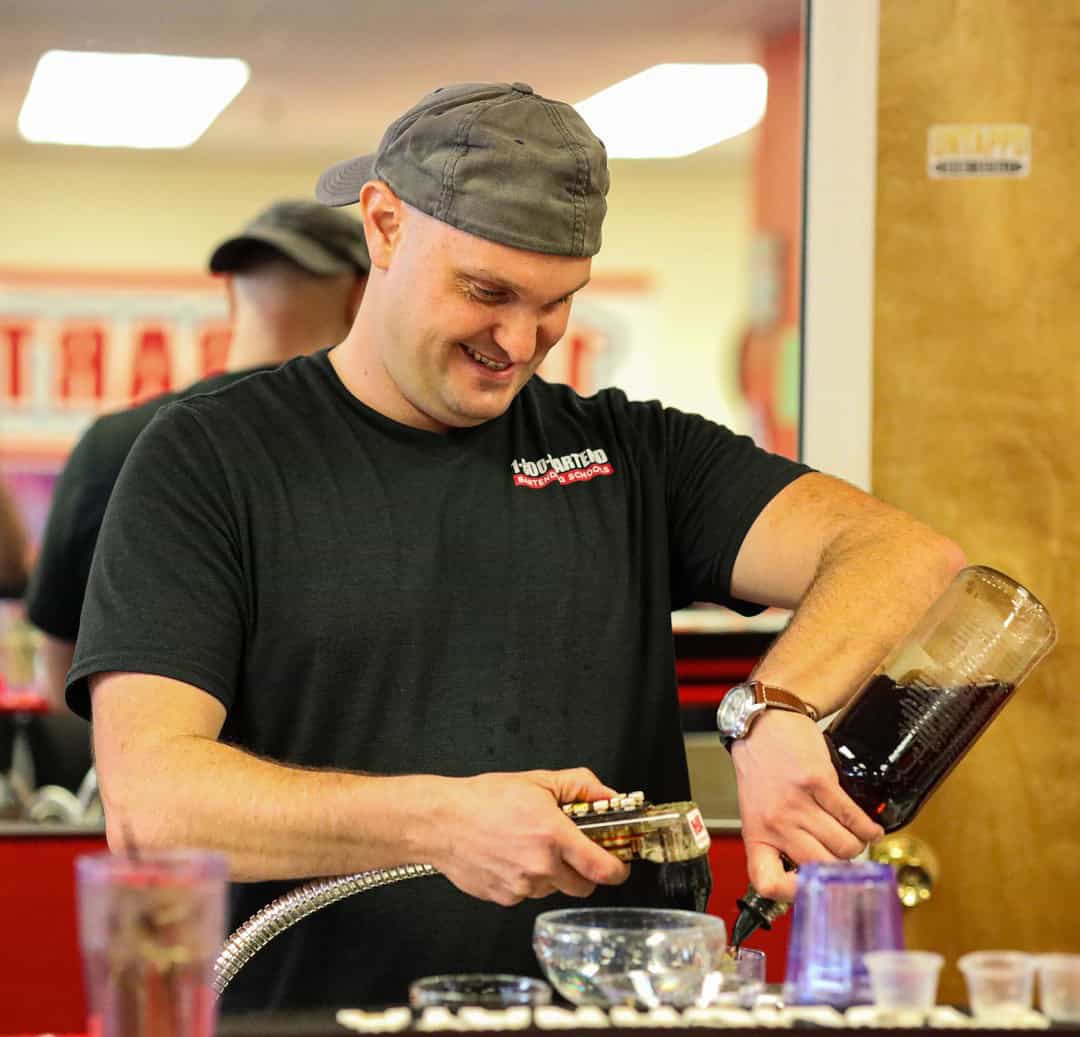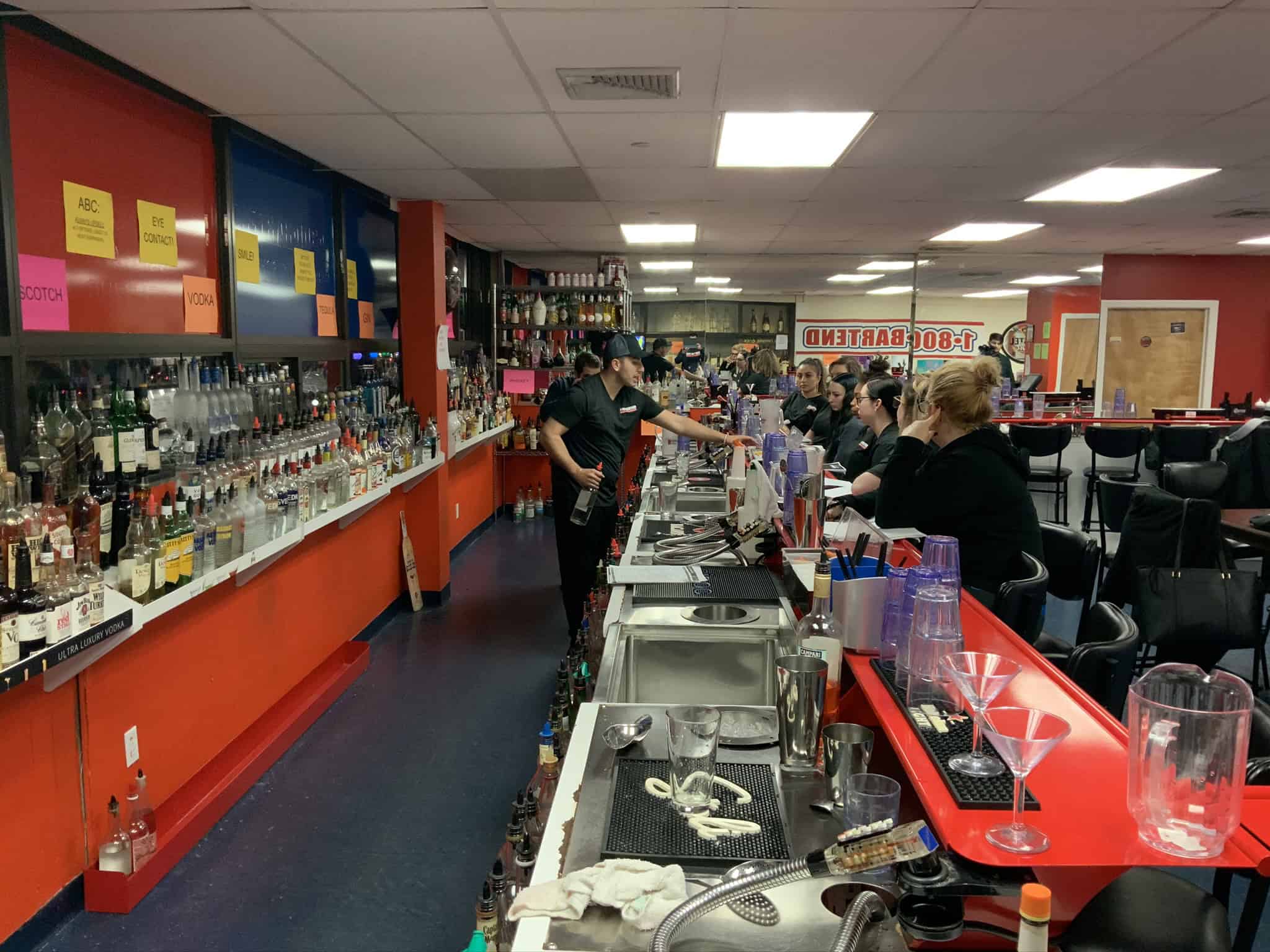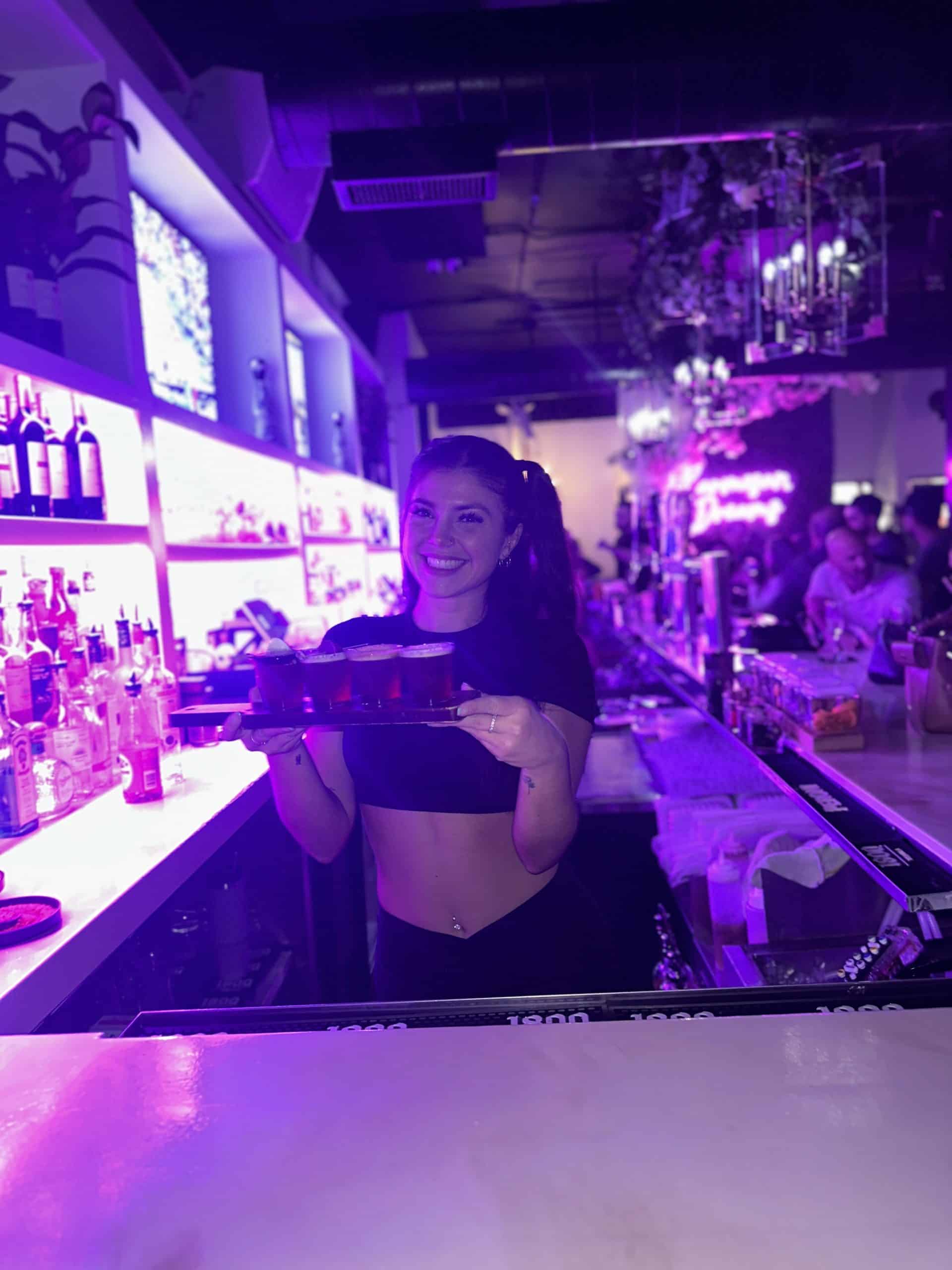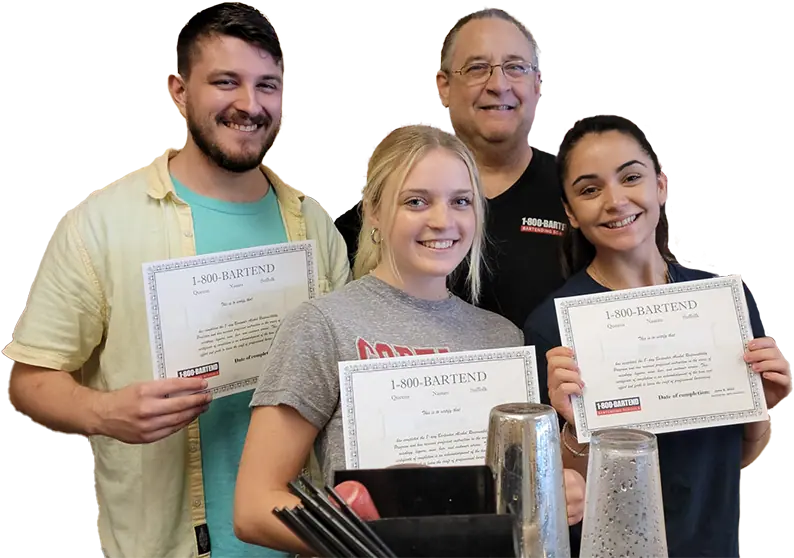What Does Bartending School Offer?
The allure of bartending school! It’s like boot camp for aspiring mixologists. Here, you can learn everything from the basics of pouring a perfect pint to the fascinating art of crafting a cocktail that could make even a renowned connoisseur be impressed and consider it an Instagram-worthy garnish. Bartending schools offer structured courses that cover a wide range of topics. This includes cocktail history, drink recipes, customer service skills, and even the occasional magic trick (okay, maybe not the last one, but close enough).
In Suffolk County, Nassau County, and Queens, NY, you’ll find bartending classes that cater to all levels. Whether you’re a newbie looking to master the basics or an experienced pro aiming to refine your skills, there’s a bartender course for you. These courses are often taught by professionals who have all kinds of expertise that you can network with, from rowdy crowds to the occasional spilled drink. Also, you get a certificate at the end, which is like your very own golden ticket to bartending opportunities.
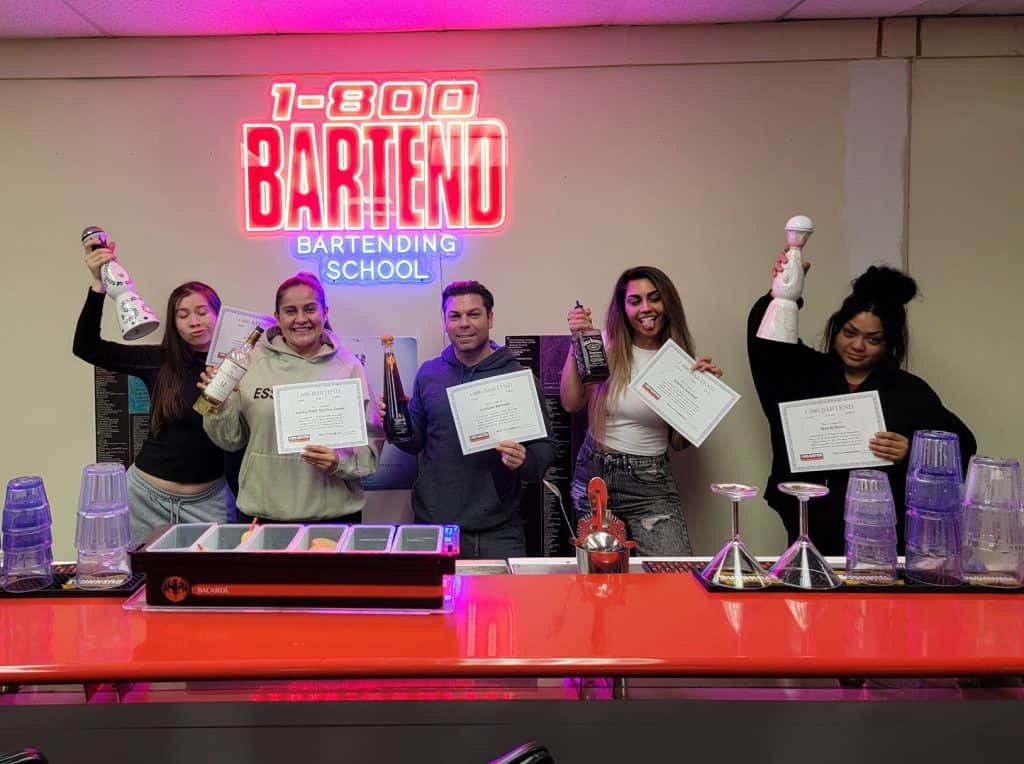
The Benefits of Bartending Classes
So, why should you consider bartending classes? Well, for starters, they offer a structured learning environment where you can absorb all the knowledge you need. You’ll have the chance to practice your skills in a controlled setting, with plenty of guidance in flavors and mixing techniques. And of course you will get to meet other aspiring bartenders, which can be a great way to make a few new friends who share your passion for mixology.
Bartending classes also provide a safe space to make mistakes. You can experiment with different techniques and ingredients without the pressure of a live audience. This can be incredibly beneficial for building your confidence and honing your craft. And let’s not forget the fun part! Who wouldn’t enjoy spending a few hours learning how to create delicious drinks while socializing?
The Cost and Commitment of Bartending School
Now, let’s talk about the cost and commitment. Enrolling in a mixology class or bartender course can be a significant investment, both in terms of time and money. Tuition fees can vary widely depending on the school and the length of the course, so it’s important to do your research and find a program that fits your budget and schedule.
In addition to the financial commitment, attending bartending school requires a certain level of dedication. You’ll need to attend classes regularly, complete assignments, and practice your skills outside of the classroom. This can be challenging if you’re juggling other responsibilities, such as a day job or family commitments. However, if you’re intrigued about becoming a mixologist and willing to put in the effort, the rewards can be well worth it.
Learning Bartending on the Job
For those who prefer a more hands-on approach, learning bartending on the job might be the way to go. This allows you to dive straight into the action, gaining real-world experience behind the bar. You’ll learn how to handle a busy night that never sleeps, all while perfecting your pour and mastering the art of the cocktail shaker. Plus, you’ll get paid while you learn, which is always a nice perk.
In Suffolk County, Nassau County, and Queens, NY, there are plenty of opportunities to start as a barback or apprentice bartender. Working your way up in the industry can provide valuable insights into the day-to-day operations of a bar, from inventory management to dealing with difficult customers. It’s an immersive learning experience that can’t be replicated in a classroom setting.

The Advantages of On-the-Job Training
One of the biggest advantages of learning on the job is to gain practical experience in a real-world setting. You’ll be exposed to a wide variety of situations, from handling a sudden rush of customers to dealing with the occasional unruly patron. This can help you develop essential skills, such as multitasking, problem-solving, and maintaining your composure under pressure and in the heat of the moment.
Another benefit of on-the-job training is the chance to learn from experienced bartenders who can share their tips and tricks of the trade. You’ll have the chance to observe how they interact with customers, manage the bar, and create signature cocktails. This hands-on experience can be invaluable in helping you develop your own style and approach as a mixologist.
The Challenges of Learning on the Job
While learning on the job has its perks, it’s not without its challenges. For starters, you may not receive the same level of formal training as you would in a bartending school. This means you’ll need to be proactive in seeking out learning opportunities and asking questions. You’ll also need to be comfortable with making mistakes in a high-pressure environment, as there’s often little room for error during a shift.
Additionally, the pace of on-the-job learning can vary depending on the establishment and your role. Some bars may provide more guidance and support than others, so it’s important to find a workplace that aligns with your learning style and goals. It’s also worth noting that starting as a barback or apprentice bartender may involve some less glamorous tasks, such as cleaning and stocking, before you get the chance to step behind the bar and start mixing drinks.
Choosing Your Path to Becoming a Mixologist
So, what’s the verdict? Should you enroll in a bartending school or jump straight into on-the-job training? Ultimately, the decision depends on your personal preferences, goals, and circumstances. If you value structured learning and want to build a solid foundation of knowledge, a bartending school might be the right choice for you. On the other hand, if you prefer a POV experience and want to start earning money right away, learning on the job could prove to be better. Reach out to 1-800 Bartend to find the recipe of success today!

